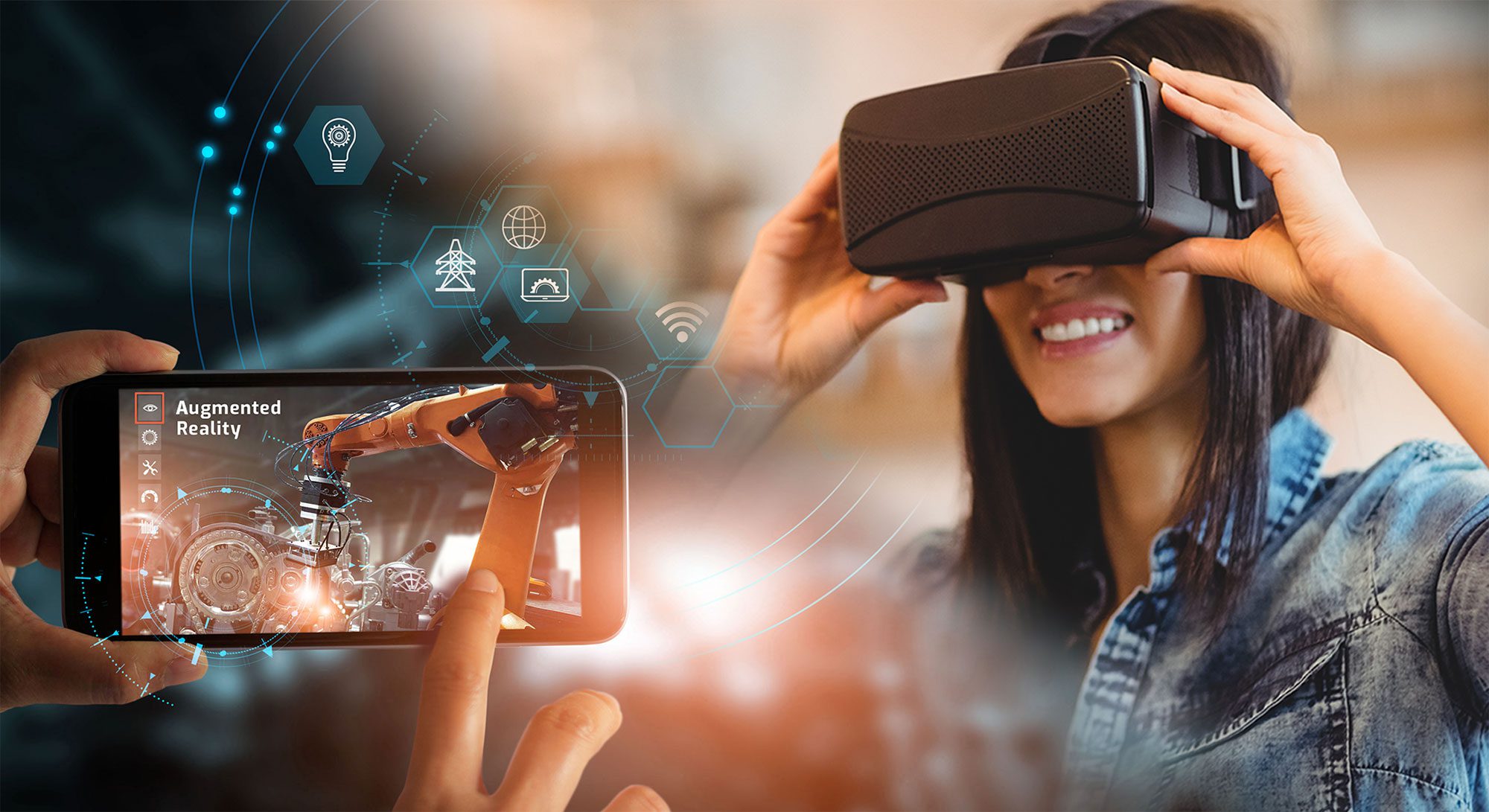AI in the Metaverse. Talks about technology in the twenty-first century have mostly focused on two topics: artificial intelligence (AI) and metaverse technologies. Each technology’s ability to increase efficiency and production may benefit different processes. AI and metaverse applications may create new opportunities for increased productivity in many sectors, including gaming, education, healthcare, and others. Still, no one has considered the interplay between the technologies.
Their mutually beneficial effects on society and AI’s capacity to handle the metaverse’s complex jobs create a synergistic partnership. Read this post to learn how metaverse and AI are connected and what they can do for society.
How Can Artificial Intelligence Fit in the Metaverse?
In the field of computer science known as artificial intelligence (AI), researchers aim to create machines that can mimic human intelligence by processing instructions given in natural language. Artificial intelligence systems can learn new tasks, think independently, and behave independently based on predetermined instructions.
One can better understand AI’s function in this realm by determining the fundamental characteristics of AI compatible with the metaverse. Research in artificial intelligence aims to create computers with enhanced processing capabilities and the ability to comprehend human speech. By analysing individuals ‘ daily data, machines can mimic human decision-making and data-processing capabilities.
Another major strength of AI is faster and more efficient data processing. Metaverse data created by machine learning would be the backbone of any AI application in the metaverse. Machine learning has the potential to enhance AI performance by analyzing data for patterns and then learning to exploit those trends.
Fascinatingly, people use basic AI systems daily to retrieve information. For instance, machine learning is secretly at work in product search recommendations. Increasing AI’s usefulness to end users is currently the primary emphasis of AI research. Much AI work has focused on how the physical world and people act.
A future where an AI-generated metaverse is a tangible possibility is not far off. A shift in computing priorities away from static experiences and toward more contextual ones is worth noting. As a result of AI, the gadgets we use daily are learning to comprehend better and anticipate our wants.
How Will the Metaverse Welcome AI?
AI’s foundational materials quickly reviewed how AI’s essential characteristics might underpin metaverse technology. Delving into the metaverse’s foundations can help you better understand the AI equation and the metaverse itself.
A persistent, open, and shared three-dimensional universe that connects the virtual and physical realms is what the Metaverse technology stands for. Some have even gone so far as to say that the metaverse is just the Internet in three dimensions. In the metaverse, users access a shared online environment that combines real-world, virtual, and augmented-reality technologies.
One of the most basic explanations is that the metaverse is a virtual reality system that allows users to inhabit several online personas. You’ll need to equip yourself with augmented and virtual reality gear to traverse the metaverse and its many virtual realms. Another significant feature is the ease of interoperability between the many digital spaces in the metaverse. It would be possible, for instance, to go from your virtual office to a virtual movie theatre in a few seconds.
The benefits of metaverse AI use cases could help use the data produced by digital activities in virtual spaces. Through user-friendly interfaces, metaverse technology enables users to generate and engage with visual data, resulting in immersive experiences.
AI could accelerate the advancement of the metaverse. Although many businesses are working on their metaverse platforms, the real goal of the metaverse is to have something different. Everyone should be able to use the metaverse without any barriers or restrictions. AI might be the key to seeing the metaverse develop more quickly.
Use Cases of AI in the Metaverse
Visits to AI and metaverse application cases are necessary stops on the journey to comprehending AI’s importance. How AI is used in the metaverse can help you grasp the interplay between the two. Even without AI, the metaverse’s virtual worlds could continue to exist. The following use cases, however, demonstrate how AI, in conjunction with the metaverse, might open up new possibilities.
Digital Humans
Digital humans are one of the most exciting potential AI applications in the metaverse. You can find digital humans in the metaverse, like chatbots, but in three dimensions. The fact that digital persons are unique exemplifies the wonders of combining AI with the metaverse.
Digital humans, on the other hand, aren’t unlike the non-playable characters or NPCs in video games that are enabled with AI and can react to user actions in the metaverse. Artificial intelligence (AI) is the backbone of digital humans, and digital humans are vital for facilitating navigation in the metaverse. For instance, Metaverse digital workspaces with automated assistants can boost adoption rates.
Intuitive Interfaces
New digital solutions must prioritize user experience, like the metaverse introduced. User experience patterns have been evolving quickly. You can see how the Internet changes in response to user needs by tracing its history from Web 1.0 to Web 3.0. AI would primarily help further HCI (human-computer interactions) in the metaverse. To navigate the metaverse, you can use high-tech virtual reality headgear backed by artificial intelligence and haptic gadgets.
The ability of metaverse hardware to read, evaluate, and forecast a user’s electrical and muscular movement patterns could be enhanced by artificial intelligence. It could be useful for predicting your preferred method of navigating the metaverse.
Cases of AI in the metaverse that lead to better HCIs (human-computer interfaces) might boost the metaverse’s popularity. In addition, AI has the potential to facilitate the introduction of voice-enabled navigation, which would allow users to interact with virtual items without the need for physical controllers.
Accuracy in Avatar Creation
Through the sensors of virtual reality headsets and haptic gadgets, artificial intelligence could assist in reading your electrical and muscular patterns. Think of all the ways it can improve the quality of your digital experiences by assisting in the creation of a realistic avatar for use in the metaverse. Think about AI’s potential for making realistic user avatars before you include AI-generated metaverse components. AI engines may use 3D scans or 2D pictures of users and create a wide range of characteristics, emotions, haircuts, and facial expressions to give the avatars a more lifelike appearance.
Expansion of VR Worlds
The AI subdomains of deep learning and machine learning are in place to ensure AI engines can learn from past results and exploit historical data. This allows it to give users more precise results when they ask questions. In addition, AI models improve their actions as they receive more data from humans and machine learning reinforcement. Eventually, AI will reach a point where it can mimic human users regarding task execution and output quality.
Technological behemoths like NVIDIA have noted AI’s promise for growing MMORPGs. NVIDIA is training various artificial intelligence models to build new virtual worlds. Thus, advancements in AI may one day make it possible to scale the metaverse without human help.
Removing the Language Barriers
The metaverse would consist of an enormous online environment devoid of physical borders. Traditional hurdles like language may prevent users from realizing the metaverse’s full potential. However, when combined with AI, the metaverse can be a powerful tool for maximizing NLP capabilities. Artificial intelligence can potentially eliminate language barriers by rapidly translating between different languages and converting them to users’ native tongues. Thanks to AI models that can be trained to provide results in any language, users from all around the globe will soon be able to access the metaverse.
How Will AI Affect the Future of Metaverse?
Metaverse AI use examples to demonstrate how combining the two technologies might unearth new possibilities. However, the future of AI’s role in the metaverse should be carefully considered. Gaining an appreciation for the interplay between AI and the metaverse can prompt you to consider potential future applications of both technologies. Below are some possible avenues for the mutual development of AI and the metaverse.
AI Would Help in Developing and Growing the Metaverse
Artificial intelligence would greatly assist the development of the metaverse and its virtual experiences. One of the most prominent applications of metaverse AI is the capacity for AI to generate new worlds, objects, and personalities. Thanks to recent advances in generative AI, more rapid 3D modelling of metaverse features, like buildings and landscapes, may soon be possible.
The use of AI has the potential to revolutionize the creation of weather patterns, immersive landscapes, and lighting effects. Artificial intelligence (AI) has the potential to greatly enhance the metaverse’s intuitive interfaces, natural language interactions, and digital humans.
Creating metaverse spaces in response to natural language queries is the next major component of metaverse-based AI in the future. So, using natural language commands, users can create an AI-generated metaverse. Users might design one-of-a-kind settings by feeding the AI models precise information about the virtual realm.
User-Generated Content and AI in the Metaverse
One of the metaverse’s most exciting features is user-generated content. Artificial intelligence has been instrumental in creating content for the metaverse. Users can access tools that facilitate the creation and personalization of virtual worlds. The next logical step for AI might be to assist with analyzing user behaviours and preferences to provide tailored recommendations.
The potential for future AI and metaverse applications to provide suggestions for virtual locations and things is exciting. Virtual assistants powered by artificial intelligence could suggest furniture and home decor items depending on users’ tastes. They might also recommend virtual locations that match their hobbies well.
Principles for Responsible Use of AI in Metaverse
Talks regarding metaverse AI applications also bring up the topic of ethical metaverse AI usage. Metaverse technology is entering the mainstream more and more. Integrating AI in the metaverse requires a commitment to responsible and ethical practices. Concerns around bias, privacy, and security should all figure into metaverse AI use cases.
Privacy is a major concern in many use cases in the metaverse involving artificial intelligence. I believe it is important to notify users about the data kind and intended uses of the data acquired from them.
Safety concerns would likewise be at the forefront of any ethical application of AI in the metaverse. Harassment, hate speech, and discrimination are examples of negative behaviour that AI algorithms should recognize and address according to tight criteria. Simultaneously, it is critical to establish measures to avoid the misuse of AI systems.
Conclusion
The possibilities for merging metaverse with AI are extensive, and they can potentially revolutionize user experiences in the future. Along with the advantages of natural language processing, artificial intelligence has the potential to aid in the rapid creation and development of metaverse environments. As examples demonstrate, AI and the metaverse may provide better user-centric experiences. A reevaluation of the risks connected with AI use is equally crucial to the progress of the metaverse. For instance, user security and privacy considerations rank high on the priorities for metaverse AI developers.






